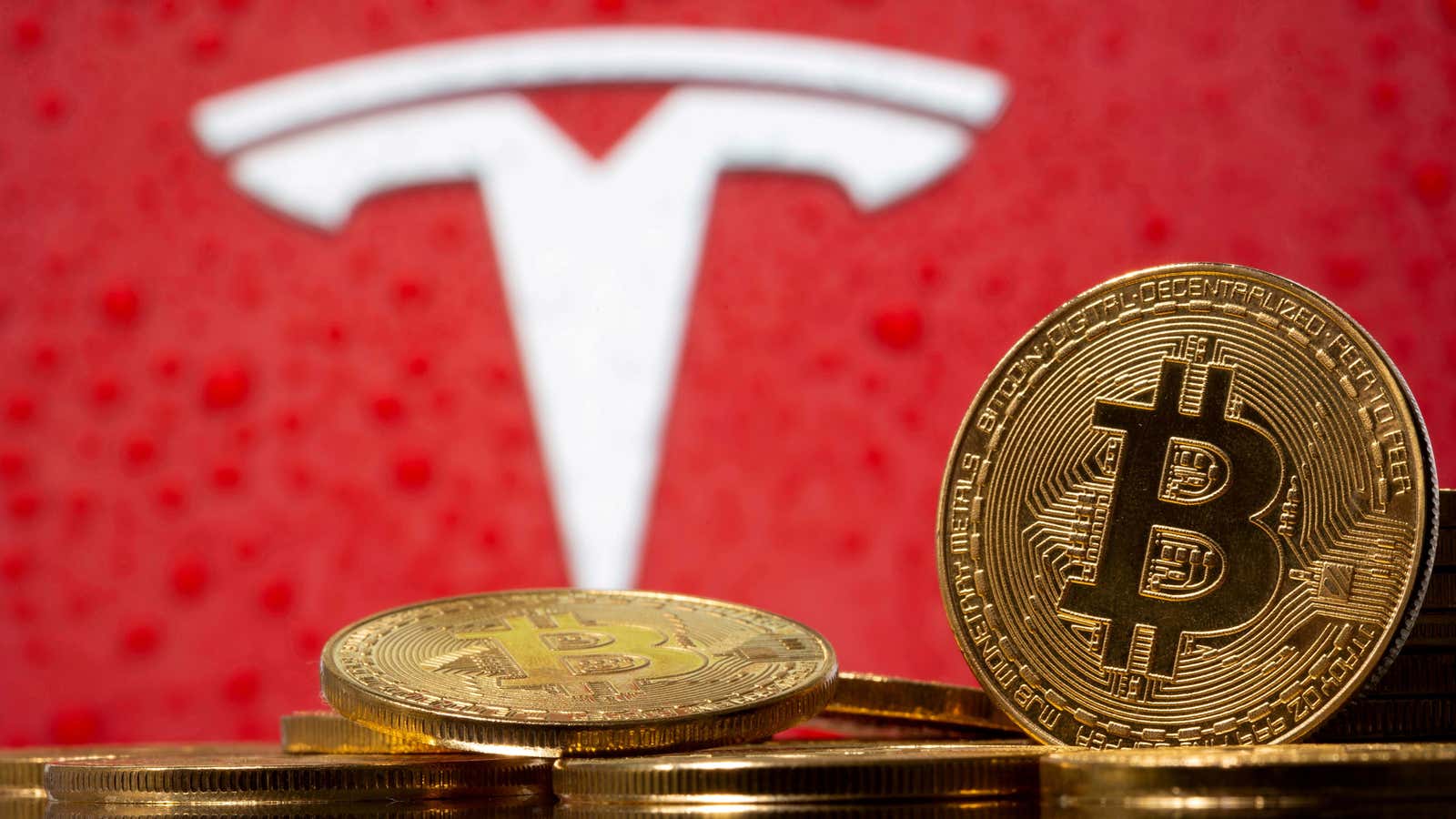Tesla’s interest in bitcoin has been decried as a distraction and a side show for the electric car company. But when a widespread covid lockdown in China forced Tesla to shutter its Shanghai factory for 22 days in April, it became a lifeline. The shutdown’s impact on Tesla’s business was severe enough that the company sold off 75% of its bitcoin holdings to bolster its cash reserves.
“The reason we sold a bunch of our bitcoin holdings was that we were uncertain as to when the covid lockdowns in China would alleviate, so it was important for us to maximize our cash position,” CEO Elon Musk told investors on a July 20 earnings call.
“This should not be taken as some verdict on Bitcoin,” he added. “It’s just that we were concerned about overall liquidity for the company.”
CFO Zach Kirkhorn said the company made a small profit on its bitcoin sale, but that gain was erased when Tesla wrote off the value of the rest of its bitcoin holdings as the crypto sector crashed. Ultimately, the company reported a $106 million bitcoin loss.
Musk said despite the loss, the company is “certainly open to increasing our bitcoin holdings in the future” and has not sold any of its dogecoin.
Tesla saw its biggest drop in production since the start of the pandemic
The April shutdown in Shanghai led Tesla’s car production to fall 15% from the previous quarter—the biggest quarter-to-quarter drop since the start of the pandemic. Although Tesla has since opened two new factories in Austin and Berlin, they didn’t scale up fast enough to make up for the loss of production in Shanghai.
“Money furnaces”
Kirkhorn told investors on the earnings call that the company is “working through the ramp inefficiencies of our new factories, which are progressing well, but have had an impact on margins as those factories come online.” Musk has called the Austin and Berlin facilities “money furnaces.”
Steep investments in the new factories, along with lower car sales, caused Tesla’s operating profits to drop nearly a third last quarter, the biggest drop since 2019.
Tesla executives hint at “record breaking” second half production
Despite Tesla’s recent challenges, executives projected optimism about the remainder of the year. Musk emphasized that Tesla’s factories in Shanghai and Fremont hit record levels of output in June.
“As a result, we have the potential for a record breaking second half of the year,” he said, before adding: “I do want to emphasize this is obviously subject to force majeure, things outside of our control. The past few years, there have been quite a few force majeures.”
